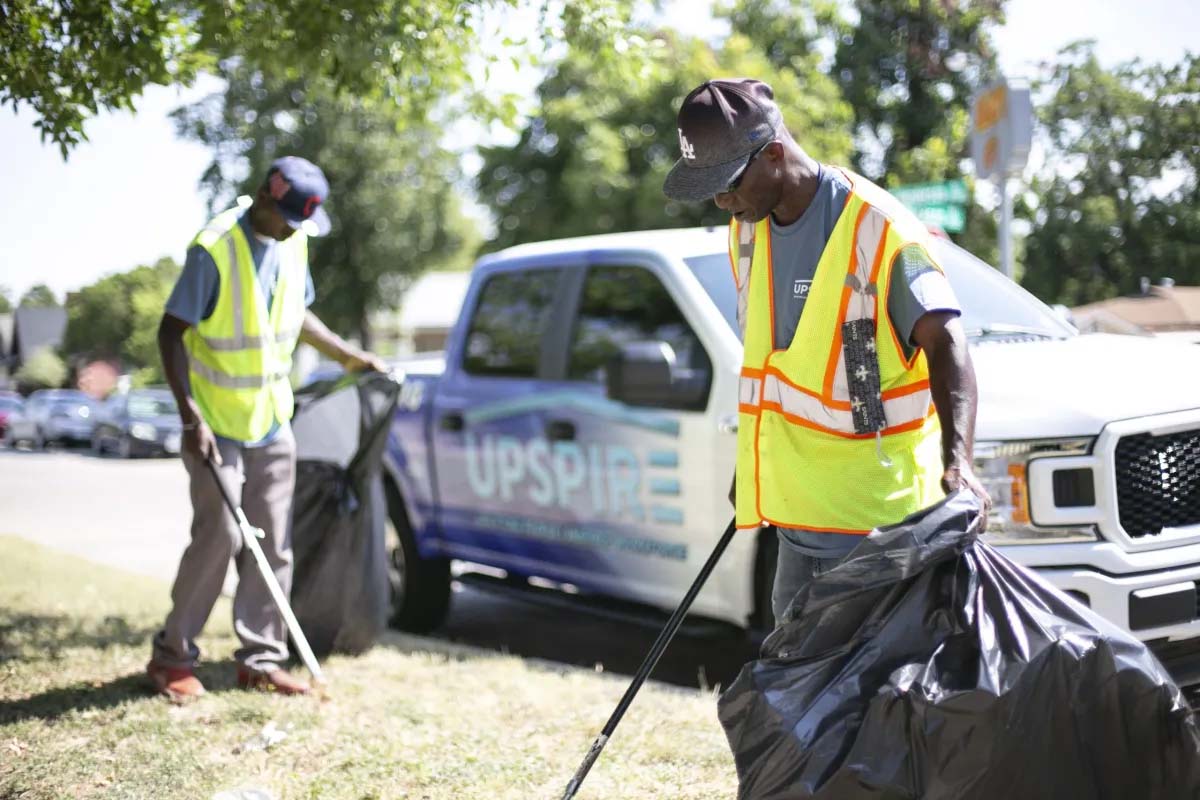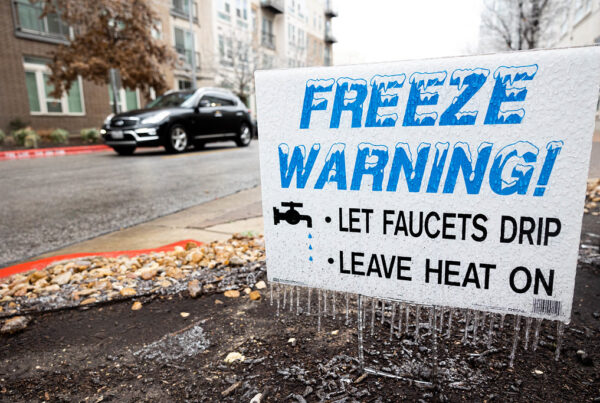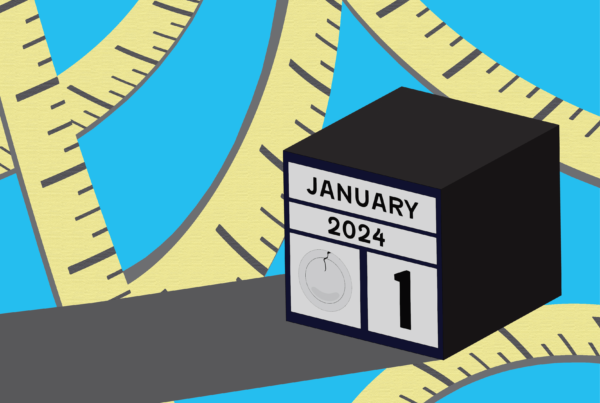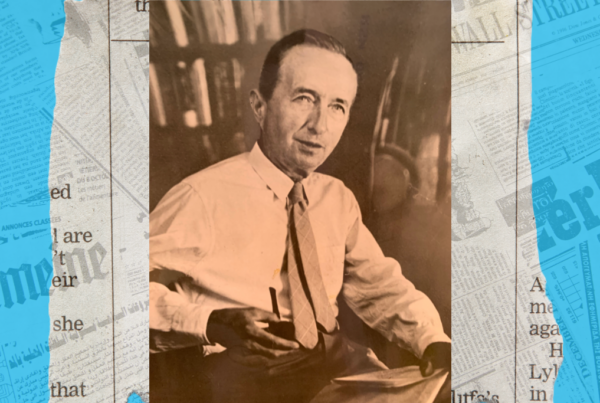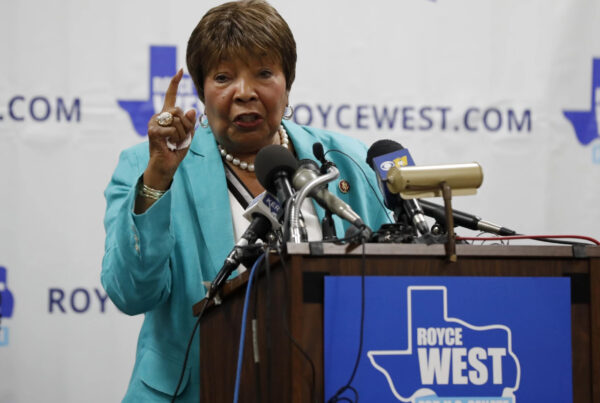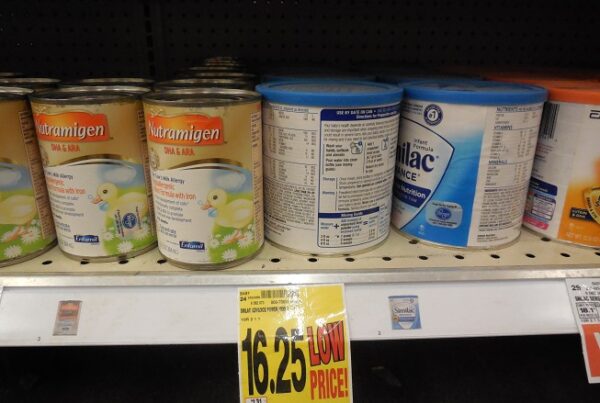From the Fort Worth Report:
Amid record-setting temperatures last summer, Fort Worth officials felt the heat from residents upset over a growing problem: the amount of litter along the city’s roadways.
A “tremendous number” of complaints flowed in about trash piling up near highways, acting environmental services director Cody Whittenburg said. Officials from the Texas Department of Transportation, which is responsible for maintaining highways, told Whittenburg their contractors were having a difficult time meeting demand during the dangerous heat wave.
“There was a request internally to try to meet that need of the public and try to come up with some options to supplement and to support TxDOT’s goals — to beautify the community, promote tourism, promote safety and promote the general view and feel of Fort Worth along our highways, roadways and green spaces,” Whittenburg said.
Months of brainstorming resulted in a new partnership between the city and TxDOT, allowing city cleanup crews to collect trash in the green spaces, ramps and rights of way along Interstate 30 and Interstate 35W. State and city officials will evaluate the effectiveness of the pilot program after about three months and decide on whether to continue, Whittenburg said.
Fort Worth’s goal is to supplement the state’s existing maintenance schedule along major highways, said Oneil Johnson, the environmental services superintendent who oversees litter control operations.
“Whenever there’s gaps in services or frequency of maintenance, that’s when we allow for more accumulation of litter along the roads,” Johnson said. “We increase the frequency of cleaning and services, we don’t allow that accumulation and then we have a cleaner city. We’ll start to see the differences along the roads.”
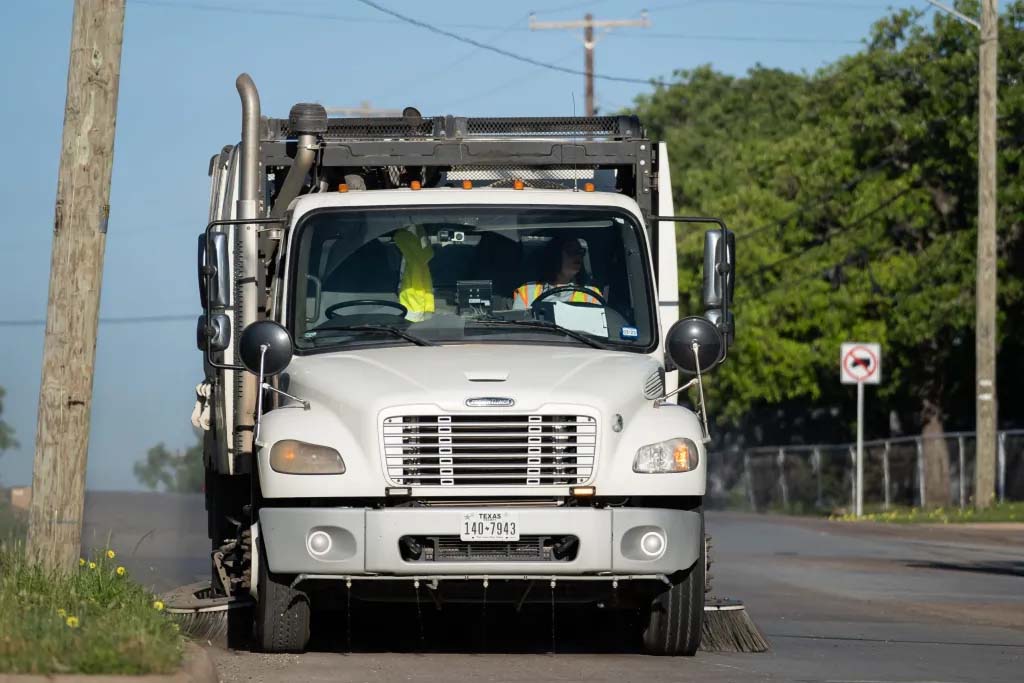
A street sweeper cleans debris off the road April 11, 2023, on Martin Street in southeast Fort Worth. The city expects 12 new street sweepers to arrive in spring 2024.
Cristian ArguetaSoto / Fort Worth Report
The initiative follows an expansion of litter cleanup efforts throughout Fort Worth over the past year.
In late 2022, the city expanded its litter pickup crews from three to 10 through a contract with UpSpire, an agency providing job opportunities to people experiencing homelessness or struggling with other barriers to employment. As a result, Fort Worth’s environmental services department reported the removal of 19.9 million pounds of litter last year, exceeding its goal of 11.5 million pounds.
Twelve new street sweepers are scheduled to arrive this spring, and city staff are moving forward with plans to construct a trash-removing water wheel near Panther Island Pavilion. The environmental services department anticipates removing 20 million pounds of litter this year.
UpSpire crews began working toward that goal by kicking off highway green space cleanups in November after completing TxDOT safety training. With the official 90-day pilot period beginning this year, crews will focus their attention on parts of Interstate 35W between downtown and Interstate 20 and portions of Interstate 30 from downtown west to Loop 820.
How to report highway litter to Fort Worth, TxDOT
Residents can report highway litter or trash buildup of any kind in Fort Worth by submitting a report on the MyFW app or contacting the city’s call center at 817-392-1234.
Residents can also report road debris or litter on highways to TxDOT through an online form. If you see a person littering from a vehicle, you can also report their license plate number to the TxDOT Don’t Mess With Texas litter campaign. The litterer will receive a letter by mail about the incident and a Don’t Mess With Texas trash bag.
“I know we’re all smiling, because we actually see the benefits. It’s not just a study or a plan,” said Kelly Porter, who leads Fort Worth’s regional transportation and innovation division. “We’ve also been able to show that this is a regional issue, and so, there are going to be some different avenues we’re going to have to take to get to where we want to be.”
To make the additional cleanups possible, the city finalized amendments to a 2007 maintenance agreement with TxDOT on Nov. 6.
Previously, the city could clean up areas near freeways where drivers turned onto the highway from a stop sign or stoplight, as those spaces were considered “uncontrolled access,” Porter said. But only TxDOT staff and their contractors could work near highways that are accessible via ramps, because those are classified as “controlled access,” he said.
“This was a new thing for the city to get out there and start cleaning up actual freeways where you don’t have stoplights,” Porter said. “Traffic is going 70 miles an hour, so the partnership has to be very delicate, because essentially TxDOT is taking some degree of liability by allowing us to clean those roads.”
The partnership wouldn’t be possible without Janet Crawford, the maintenance director for the TxDOT Fort Worth District, Porter and Johnson said. In a statement, Crawford said the agency is glad to collaborate with the city to improve maintenance.
“We all need to be mindful of how our everyday actions or indifferences can contribute to the problem,” Crawford said. “Litter control is everyone’s responsibility.”
City staff will measure success of the program through tracking the areas cleaned each month and conducting visual inspections near highways, Whittenburg said. If the number of complaints about trash near roadways decreases, the city will know that the pilot is having its intended effect.
“It’s the start of something,” Johnson said. “It’s going to take a little time. But we look forward to seeing some vast improvements within this 90-day pilot.”
Haley Samsel is the environmental reporter for the Fort Worth Report. You can reach them at haley.samsel@fortworthreport.org.
At the Fort Worth Report, news decisions are made independently of our board members and financial supporters. Read more about our editorial independence policy here.


